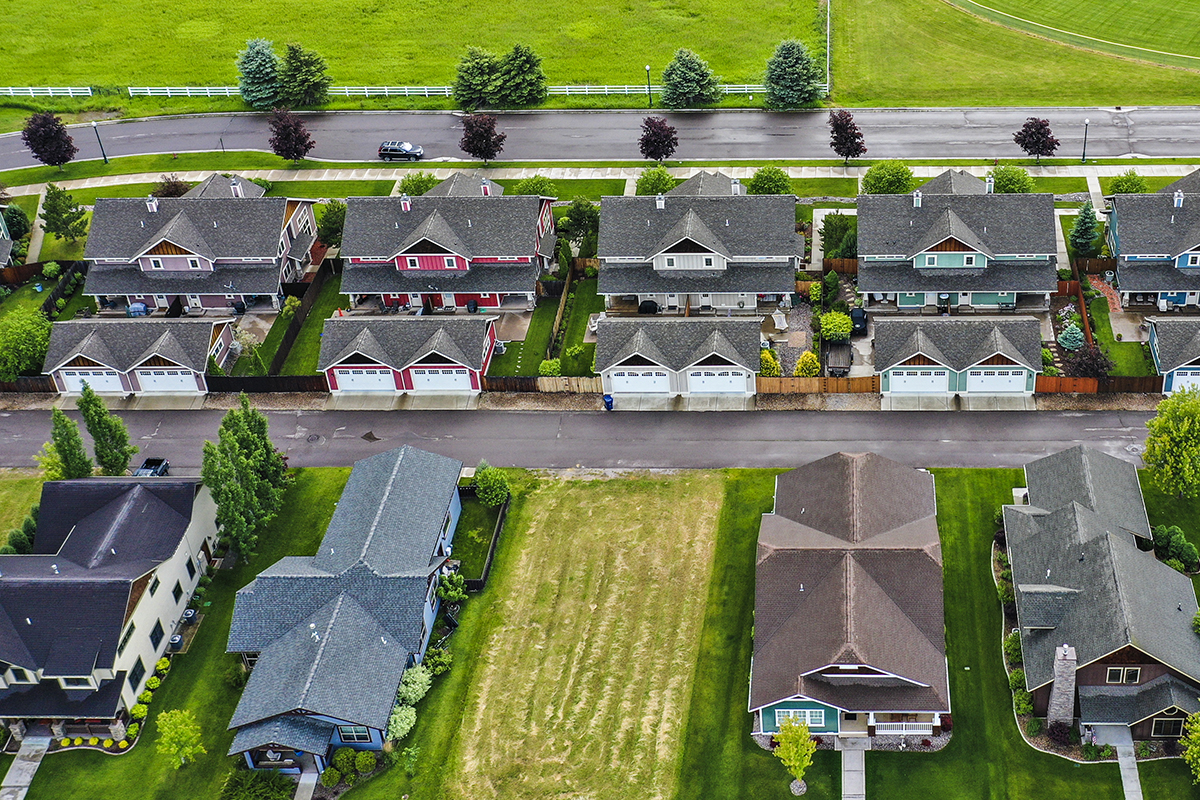‘Homesick’ Author to Join Shelter WF Housing Discussion
A yard sign saying “Neighbors, Not AirBnBs” planted the seed for Brendan O’Brien’s book about housing unaffordability in the U.S., which he'll discuss during an Oct. 11 panel at Blackstar Brewery in Whitefish
By Mike Kordenbrock
Before completing his master’s degree in geography at the University of Northern Arizona, Brendan O’Brien was moving around the West with regularity, working odd jobs with the U.S. Forest Service and the National Park Service, and getting an up-close look at the concurrent trends of growing tourism in national parks and the rising costs of living in neighboring communities.
Through those travels, as well as his work as a backpacking guide, O’Brien was introduced to the Bozeman area, and other communities in the West, including in California, Oregon, and New Mexico. Originally from Davenport, Iowa, he’s now based in Flagstaff, Ariz., where he works as a backpacking guide. But it was New Orleans, a place he found himself in roughly five years ago, where he saw a yard sign that said, simply, “Neighbors Not AirBnBs.”

“And that just kind of became the launchpad for my thesis,” O’Brien said. The research and writing project began during the COVID-19 pandemic, and it continued to expand, becoming what O’Brien called “an interrogation of the way we set up our entire housing system.”
That thesis, and O’Brien’s writing and research on the topic, can now be found in “Homesick: Why Housing Is Unaffordable and How We Can Change It.” Published in September by Chicago Review Press, “Homesick” examines America’s housing issues on a national scale. Meanwhile, O’Brien’s cross-country travels have continued since the book’s publication, this time in search of conversations about housing issues with people who are both impacted by the housing crisis, as well as those who are trying to find solutions.
In late September, O’Brien traveled to Missouri, with book tour stops in St. Louis, Kansas City, and Kirksville (home of Truman State University, where O’Brien studied as an undergraduate). The tour continued on to Davenport, Iowa, and Rock Island, Ill., Chicago, and Minneapolis, and on Oct. 8, O’Brien had his first Montana event, a discussion with HRDC Housing Director Brian Guyer at the Bozeman bookstore Country Bookshelf.
On Oct. 11, O’Brien will be in Whitefish, where he’ll sit down at Blackstar Brewery at 6 p.m. for a panel discussion organized by the nonprofit Shelter WF, which looks to confront housing inequality in Whitefish. Joining O’Brien will be the developer James Barnett, Shelter WF president Nathan Dugan, Brian Schott of Explore Whitefish, Housing Whitefish Executive Director Daniel Sidder, and Keegan Siebenaler, a Shelter WF board member and former Northwest Montana Community Land Trust employee.
During his travels, some of which spanned the height of the pandemic, O’Brien said he observed in changing communities how people were affected by housing issues on both a material level — “How do I make ends meet?” — and on an emotional level — “Is there a place for me here?”
It struck a chord with him, and as he looked closer at various trends involving short-term rentals, investment properties, remote work, and community growth and change, he said he began to piece together a theme, that showed locals were competing for housing on a global market. While O’Brien said he believes there is a national housing shortage, he emphasized that while building more and incentivizing building is important, how it’s done matters so as to not further entrench existing issues.
“Homesick” is divided into three sections, with the first looking at the current housing situation, the second looking at the history, and the third focusing on solutions.
O’Brien said one of the key ideas the book fleshes out is the evolving definition of “home”; for example, in America the concept of a home has shifted from laying roots, raising a family and joining a community, to something representing an opportunity for investment, and a chance to return a profit.
“There are huge incentives in the housing market for property values to grow. And that’s encouraged by a government who relies on those property taxes, on different services, school systems that are paid for by those property taxes, homeowners who are relying on their property value going up because that’s their retirement plan, that’s their nest egg, that’s what they’re going to pass on to their kids,” O’Brien said, adding that he believes this helps lead to people thinking about housing issues in their community primarily based on how it affects them individually. At the same time, he sees community as something that comes down to people looking out for each other and seeing shared value in living in the same place.
“We have this tension at the core of the country, and it’s the idea that the United States is a blank space for those who want to generate wealth, or is it a place of opportunity where people can connect to a community, where they can realize dreams that are not only personally beneficial, but also bolster community values that are good for the environment, that connect with all these other issues ” O’Brien said. “It really is reaching such a point where a lot of people, especially non-white people, especially younger people, are looking around wondering if there’s a place for them.”